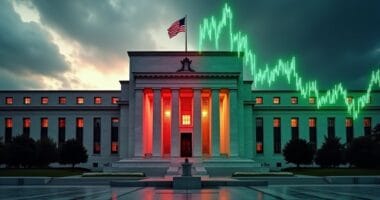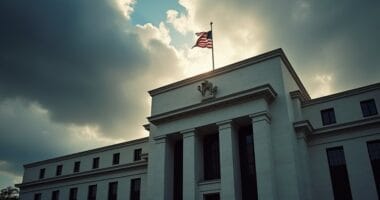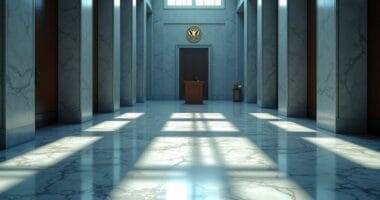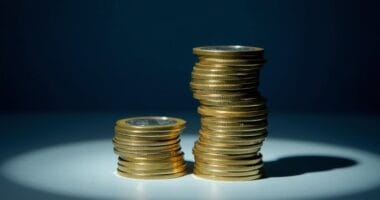Despite reduced U.S.-China tariffs and modest economic gains, JPMorgan CEO Jamie Dimon isn’t buying the market optimism. Recession odds still hover at 50%, down slightly from earlier predictions of 60%. Sure, GDP forecasts ticked up to 0.6% for 2025, and the Fed may cut rates soon. But looming risks – from geopolitical tensions to ballooning debt – keep Dimon skeptical. The economic rollercoaster ride isn’t ending anytime soon, folks.
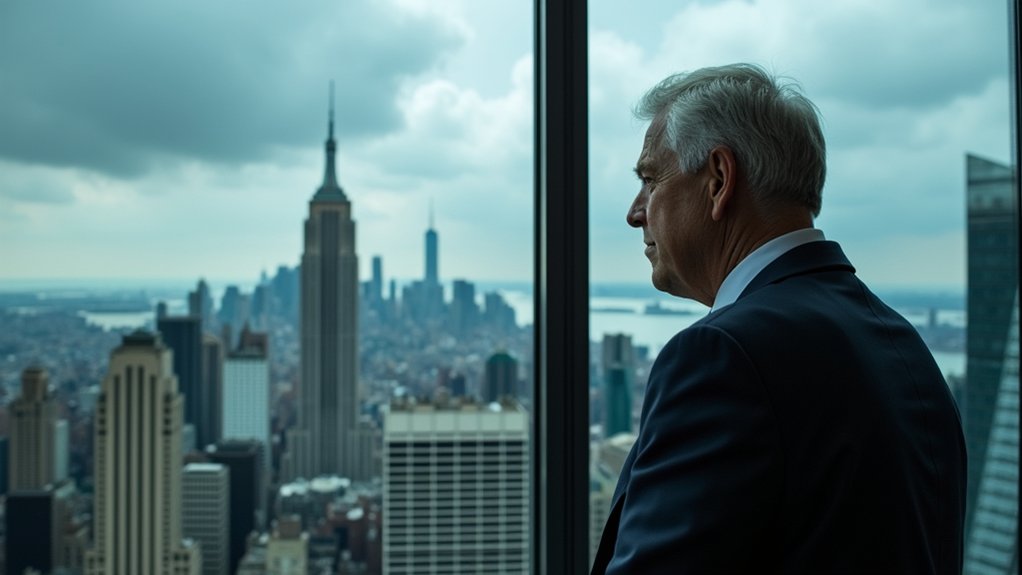
Despite recent signs of economic optimism, JPMorgan Chase CEO Jamie Dimon isn’t ready to pop the champagne just yet. Speaking at JPMorgan’s annual Global Markets Conference in Paris, Dimon maintained that a U.S. recession remains a distinct possibility, even as trade tensions between the U.S. and China have eased.
The banking titan puts the odds of a recession at roughly 50% – slightly better than JPMorgan’s previous forecast of 60%, but hardly cause for celebration.
JPMorgan’s outlook remains cautious, with recession odds dropping slightly to 50% – a minor improvement that still signals significant economic uncertainty.
Sure, markets perked up after the U.S. and China agreed to slash their tit-for-tat tariffs in Geneva.
Chinese import tariffs dropped from a whopping 145% to 30%, while U.S. export tariffs fell from 125% to 20%.
But Dimon’s not buying the happy talk just yet.
Wall Street giants Goldman Sachs and Barclays have also reduced their recession odds.
The numbers tell an improving story.
Despite ongoing uncertainties, the U.S. remains the top investment destination globally.
JPMorgan raised its 2025 GDP estimate from +0.2% to +0.6%, and their economists pushed back expectations for the Federal Reserve’s first rate cut to December.
Yet Dimon sees storm clouds on the horizon: geopolitical tensions, ballooning national debt, and rising interest rates continue to cast shadows over the economy.
Business leaders aren’t exactly rushing to open their wallets either.
Many of JPMorgan’s clients are sitting on their hands, delaying investment decisions amid the uncertainty.
Some international businesses are even giving American goods the cold shoulder – sorry, Kentucky bourbon manufacturers.
The recent U.S.-China trade deal, signed in Switzerland just a week before Dimon’s comments, earned his approval as “the right thing to do.”
But speaking during a Bloomberg Television interview, he emphasized the need for continued dialogue between the economic superpowers.
Business cycles often create periods of economic uncertainty and market volatility, making accurate predictions challenging.
Market fluctuations have stabilized somewhat, but Dimon’s message is clear: don’t mistake a temporary tariff pause for an all-clear signal.
JPMorgan’s analysis still points to significant recession risks, even with the probability dipping below 50%.
The magnitude and duration? That’s anyone’s guess, according to Dimon.
One thing’s certain – this economic rollercoaster isn’t over yet.


